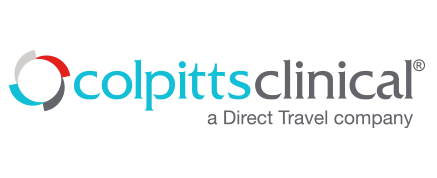World Lung Cancer Month
World Lung Cancer Month: A Month for Awareness, Action, and Hope
August is recognized as World Lung Cancer Month, a time dedicated to raising awareness about lung cancer, its prevention, and treatment. Lung cancer is one of the most common and deadliest forms of cancer worldwide. This month focuses on highlighting the importance of early detection, educating the public about risk factors like smoking and exposure to pollutants, and supporting research for better treatments.
Events and campaigns during this month often aim to provide information, support patients and families affected by lung cancer, and advocate for policies that can help reduce the incidence and impact of the disease. If you’re looking to get involved or learn more, you might find local events, support groups, or online resources dedicated to this cause.
A Time for Awareness and Action
August marks a significant period in the global fight against one of the most challenging health issues of our time: lung cancer. Designated as World Lung Cancer Month, this month serves as a pivotal opportunity to raise awareness, promote early detection, and support ongoing research efforts. As we embark on this crucial month, it’s essential to reflect on the impact of lung cancer, understand the importance of prevention and early diagnosis, and take actionable steps to contribute to the fight against this devastating disease.
Understanding Lung Cancer
Lung cancer is the leading cause of cancer-related deaths worldwide. It begins in the lungs and can spread to other parts of the body if not detected early. There are two main types of lung cancer: non-small cell lung cancer (NSCLC), which accounts for about 85% of cases, and small cell lung cancer (SCLC), a more aggressive form. Both types can be challenging to diagnose early, which is why awareness and education are crucial.
The Importance of Early Detection
Early detection of lung cancer can significantly improve the chances of successful treatment. Unfortunately, lung cancer often does not present symptoms until it is in advanced stages. This is why screening programs and awareness campaigns are vital. Low-dose computed tomography (CT) scans have been shown to reduce lung cancer mortality in high-risk populations, such as long-term smokers or those with a family history of the disease.
Risk Factors and Prevention
While smoking remains the most significant risk factor for lung cancer, it’s not the only one. Exposure to radon, asbestos, and other environmental pollutants can also increase risk. Additionally, a family history of lung cancer can elevate one’s risk. Understanding these risk factors is crucial in prevention efforts. Quitting smoking is the most effective way to reduce the risk of lung cancer. Avoiding exposure to harmful substances and maintaining a healthy lifestyle can also contribute to lowering your risk.
Support Research and Advocacy
Research plays a pivotal role in advancing treatments and finding a cure for lung cancer. During World Lung Cancer Month, supporting research initiatives and advocacy groups can make a significant difference. Donations to organizations dedicated to lung cancer research help fund studies that lead to new treatments and, potentially, a cure. Advocacy efforts also work to improve policies related to cancer prevention, treatment access, and patient support.
Get Involved
There are many ways to get involved during World Lung Cancer Month:
- Educate Yourself and Others: Share information about lung cancer prevention and the importance of early detection with friends and family. Knowledge is a powerful tool in the fight against cancer.
- Participate in Events: Many organizations host events, including fundraisers, awareness walks, and informational seminars. Participating in or supporting these events can help raise awareness and funds for research.
- Support Lung Cancer Organizations: Consider donating to or volunteering with organizations focused on lung cancer research and patient support. Your contribution can make a real impact.
- Advocate for Policy Change: Support policies that promote cancer research, improve access to screening and treatment, and address environmental risk factors.
- Get Screened: If you are at high risk for lung cancer, talk to your healthcare provider about screening options. Early detection can save lives.
World Lung Cancer Month is more than just a time to reflect—it’s a call to action. By raising awareness, supporting research, and taking preventive measures, we can contribute to the fight against lung cancer and improve the lives of those affected by it. As we move through August, let’s commit to making a difference, one step at a time.
Together, we can strive for a future where lung cancer is no longer a leading cause of death but a manageable condition with effective treatments and, ultimately, a cure.
Read more
Alzheimer’s Brain Awareness Day
Supporting Patients with Fabry Disease in Clinical Trials



